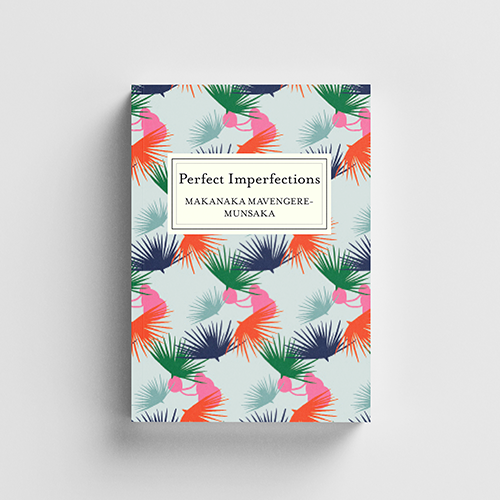Perfect Imperfections Extract

“The heavy booted feet of workers making their way home after a long day in the fields, the wheels of old trucks that delivered supplies to the village every so often, the feet of school children walking more than two hours to and from the nearest school and heavily laden scotch carts drawn by oxen that had seen better days had all worn the red, cracked gravel road in Buhera, Zimbabwe. The dusty path led to Michero Mitatu village.
As the sun was setting, the inhabitants of the village could be heard settling into their evening routines. There were muted conversations from the men as they made their way home from the village court and the loud whistles of the herdboys as they rounded up the cattle, directing them into the kraals.
Pots were clanking as the women put what meagre rations they could find together into a wholesome meal for their families and some girls could be seen walking back from the well at a leisurely pace, balancing calabashes of water on their heads as they snickered and laughed out loud at whatever rumours were circulating in the village.
I gazed into the distance, following the long winding path with my eyes, and wondered about the world beyond it. The world where I heard meals could be prepared on a contraption that did not require firewood; where people lived in houses that were big enough to hold entire villages; and where both women and men could earn a living and provide a better life for their families. The place I knew I was probably never going to see.
August 2005
I was a happy fifteen-year-old girl, full of life, with the dream of one day going to the city to study to be a teacher. Unlike my peers, I loved school despite the fact that it was two hours away. I did not care that the school was made up of a tiny office block, two windowless classrooms for the A-level students, and a few Musasa trees scattered around the grounds with old blackboards stuck on their trunks on which all the knowledge I had accumulated thus far had been scribbled with white chalk.
I did not take to heart the remarks of teachers like Ms Pararayi, a science teacher who felt that doing arts subjects (English, history and Shona) was a complete waste of time. She would say, ‘Kutoita maArts? Mxm.’ Ms Pararayi was convinced that all of us doing these subjects were going to end up being traditional healers and believed we would be better off just going to the river and getting captured by a mermaid instead of wasting our time.
After school, I used to go to the borehole, fetch water for the house, gather firewood, take a bath in the river then rush home to assist my mother with cooking supper for the family. I did this almost daily and unlike everyone else around me, who seemed content with the tedious repetition and routine, I felt there was much more to life than being within the confines of Michero Mitatu.”



